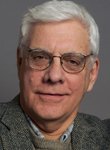Digitized 'readers' shed light on 1970s activism
By Gwen Glazer

Through a major digitization effort from a pre-eminent researcher and Cornell University Library, a snapshot of dozens of progressive U.S. cities in the 1970s is now online.
Developed with Emeritus Professor Pierre Clavel from the Department of City and Regional Planning, the library’s new digital collection – materials from the Conference on Alternative State and Local Policie – provides a glimpse into the minds of progressive advocates at a seminal moment in the mid-1970s.
Organizers who sought to tie the aspirations of a generation of activists to the institutions of local and state government created the conferences, which “represented an outpouring of energies, ideas and projects from activists who sought redistributive policies and more open government, to be achieved through practical measures that could get majority support,” Clavel said.
The project features “readers” – bound packets of documents (scholarly journal articles, government documents, newspaper stories and private letters) – created for national and regional meetings. Volumes from conferences in Madison, Wis., in 1975, and Austin, Texas, in 1976, are available online.
“So many different topics, like energy, health, jobs and economies, are compiled into a single, coherent source with these readers,” said Evan Earle, collections specialist in the Division of Rare and Manuscript Collections. “Before the ease of Internet searching, it was really valuable to have all these broad, but related subjects combined in one place. But even today, if you were trying to find all of this information, it would be hours of searching and you still might miss out on important ideas. With these digitized collections, you have everything together.”
Clavel, who retired from Cornell in 2010, digitized the papers himself. The library split the articles into files and converted them to text files searchable via Google and the library’s website.
“The readers contain the potential for a lot of research and historical background that links closely to major movements happening today,” Clavel said. Two of his own books are based in part on research from these conference proceedings, and he noted that the readers serve as a kind of “prequel” to his own scholarship.
Subsequent conferences in Berkeley, Calif.; Boston; Burlington, Vt.; Chicago; Cleveland, Ohio; Hartford, Conn.; Madison, Wis.; and Santa Monica, Calif., as well as international cities, drew on the city-planning issues first presented at the conferences.
Physical materials from those cities are included in the library’s Progressive Cities and Neighborhood Planning collection, available in the Division of Rare and Manuscript Collections. The library hosts more than 200 collections of city and regional planning materials that tie into subjects taught at the College of Architecture, Art and Planning; enthusiasm about the current project could lead to additional funding to digitize more physical materials.
Many of the people who wrote and used these documents are still active in their fields, Earle added, “and if researchers have questions, they can actually try to reach out and get a hold of the original sources.”
Gwen Glazer is the staff writer for Cornell University Library.
Get Cornell news delivered right to your inbox.
Subscribe